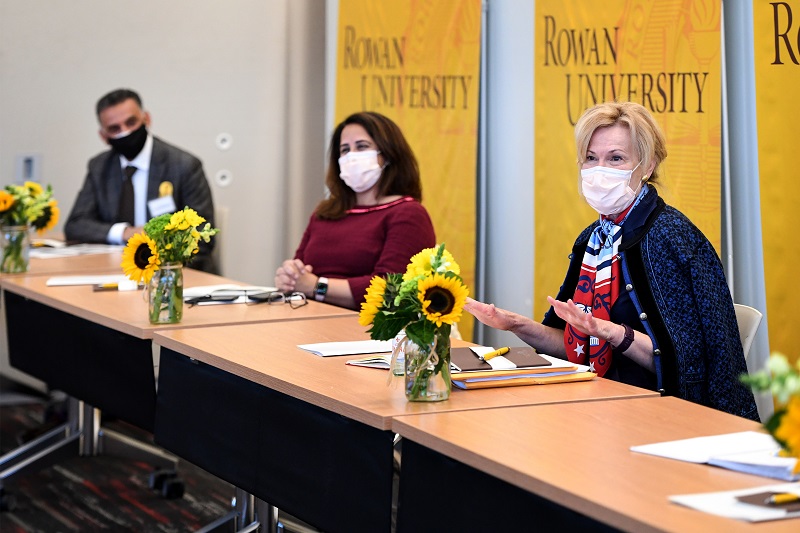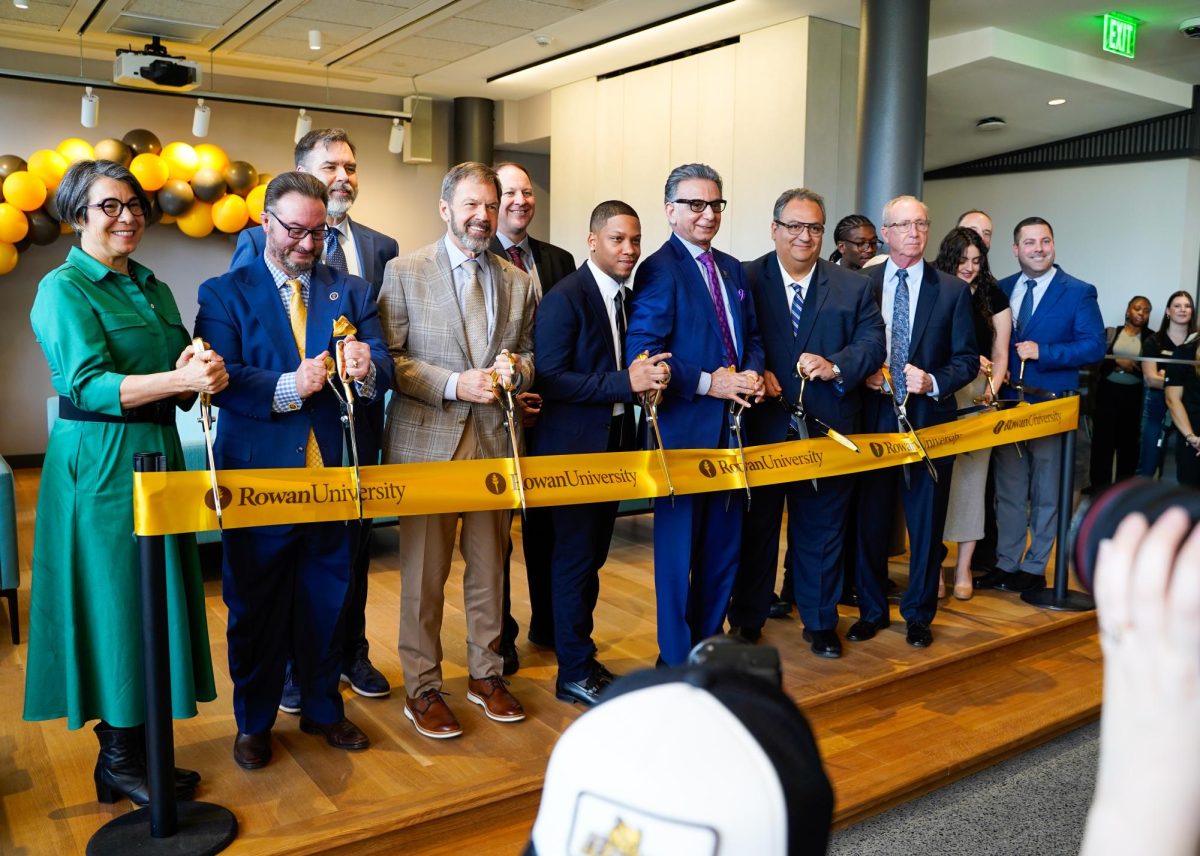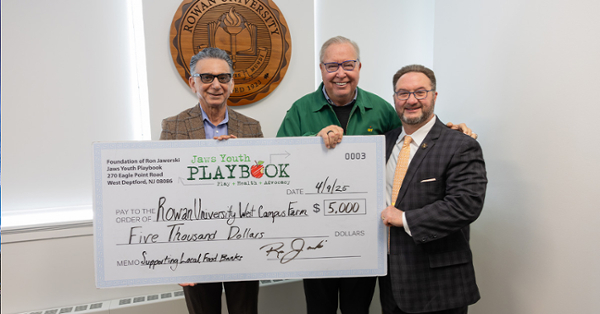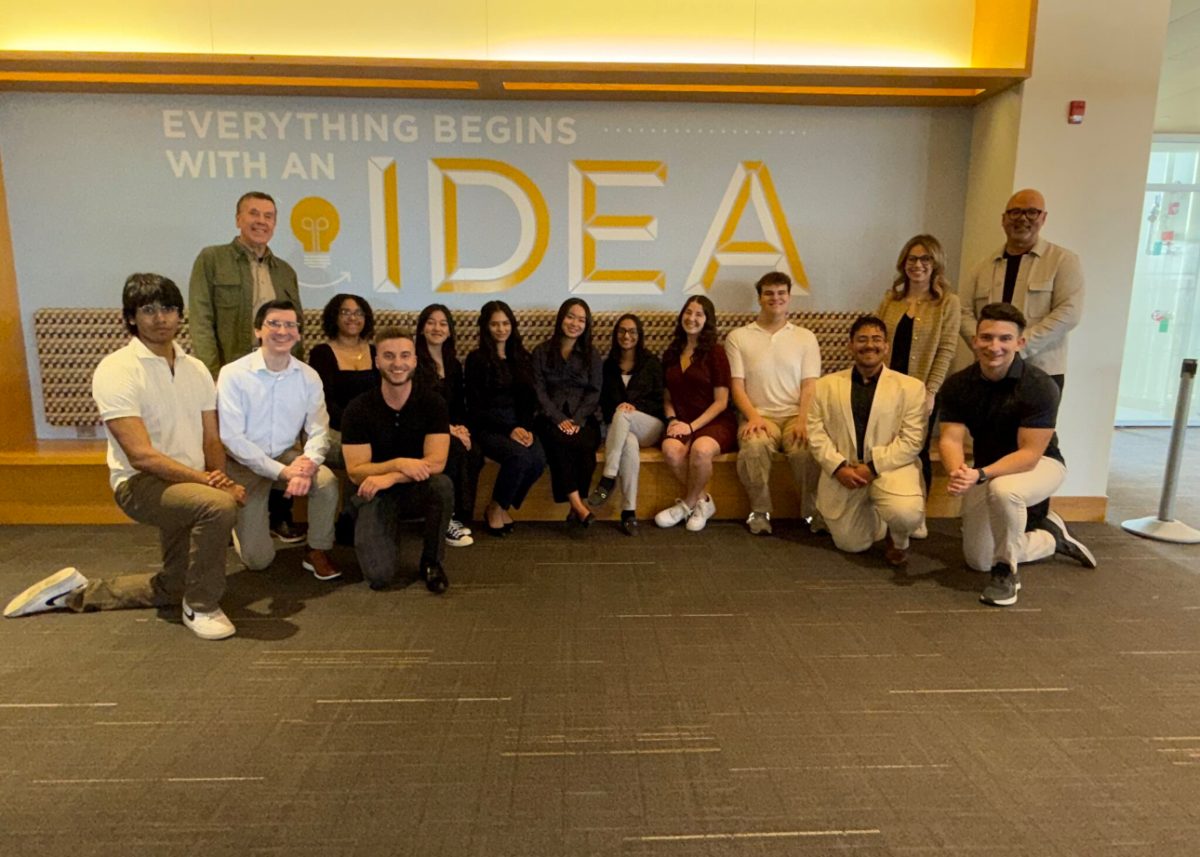Dr. Deborah Birx, world-renowned global health expert and White House coronavirus task force coordinator visited Rowan University on Oct.6, where she gave high praise to the school’s pandemic response at a press conference outside the Rohr College of Business.
“We are in the Northeast because we see early warning signs equivalent to what we saw in the South in May when we saw the states that had low test positivity with just a little increase in those cases,” Birx said. “At the time of March and April we didn’t know the depth and breadth of asymptomatic spread, we do know that now. That’s what we have to survey for.”
Birx came to Rowan University on her national tour of 18 higher education institutions noted as models for adapting to pandemic conditions. However, it is also following a spike in cases in states like New Jersey, which saw its highest increase in single-day cases: 796 on Oct. 2.
“We all understand how difficult the March/April timeframe was. The message we are trying to convey to the Northeast is: it won’t look like that this time,” Birx said. “What we’ve learned from the South is if you wait until people show up in your emergency room or hospital, you already have significant community spread.”
Birx’s visit also comes one day after President Donald Trump left Walter Reed National Military Medical Center, urging Americans not to be afraid of the virus.
“I think we have been very clear in our public health messaging that the reason we are on university campuses is they brought down the cases. The students changed their behavior, and really the university supported that behavior change by providing isolation and quarantining,” Birx said.
Birx also stated that she believes the Northeast can identify infected communities with better testing before cases become a significant problem. She also highlighted the importance of young students taking the initiative to combat the virus, considering the spike in cases the nation has seen in college towns.
“Students and teachers are a reflection of community spread. The virus doesn’t miraculously appear in a school, it comes from the community,” she said. “We have to use those indicators and data as another surveillance tool to understand if the virus is actively transmitting in a community or not.”
“We know that spread occurs in communal living, whether you are in a homeless situation or frankly in a communal living situation at universities. I think understanding that the university has confronted that and understood the importance of isolation and quarantine…shows us that we have the tools within our grasp. We have the tools as Americans,” Birx said.
Birx stated that social interactions in communal living are what spread the virus. The director of Rowan’s Wellness Center, Scott Woodside, expanded on this during Rowan’s online panel for faculty on Wednesday.
“She really echoed what we’ve been saying, that the spread that we’ve seen is a social spread, not fueled by classroom or workplace, but with social interactions,” Woodside said. “It’s those small interactions that we aren’t thinking about. So please be very vigilant as to what you are doing at nights, weekends, and holidays.”
Birx believes that Rowan has done well in communicating with students, particularly with signs. However, she thinks that it is always important to talk about where we can improve.
“No one is perfect, in all of our visits, 18 campuses, we’ve never given an A. But, we can give them an A+ for signage,” Birx said. “I would like much more surveillance to be done to find asymptomatic cases, so we’ve discussed that.”
Anthony M. Lowman, the provost of Rowan University, announced to an online panel for faculty on Wednesday that the spring semester’s plan is finalizing. According to Birx, the fact that Rowan has already begun planning for the spring semester is an “illustration of success.”
However, listening to student feedback will be necessary to keep them from leaving next semester.
“You’ll have some increase, but I think there will be better and broader mitigation because we’ve learned. And every time we’ve learned how to do it a little bit better. That’s what these institutions of higher education are, places where we can learn,” Birx said.
Birx went on to say she had a conversation with the Cooper Medical School regarding how they can help provide antibody tests in the future. Dr. Annette C. Reboli, MD, the dean of Cooper Medical School of Rowan University, talked about this with faculty in an online panel on Wednesday.
“Antibodies are formed in response to infection. For an active infection, they are not the recommended tests,” Reboli said. “However, there is a role for them to show a snapshot of the population that had an infection. We will be looking into some antibody testing at Rowan, probably at the end of this semester, and get that snapshot.”
For comments/questions about this story, email [email protected] or tweet @TheWhitOnline.

























































































































































!["Working with [Dr. Lynch] is always a learning experience for me. She is a treasure,” said Thomas. - Staff Writer / Kacie Scibilia](https://thewhitonline.com/wp-content/uploads/2025/04/choir-1-1200x694.jpg)


















































